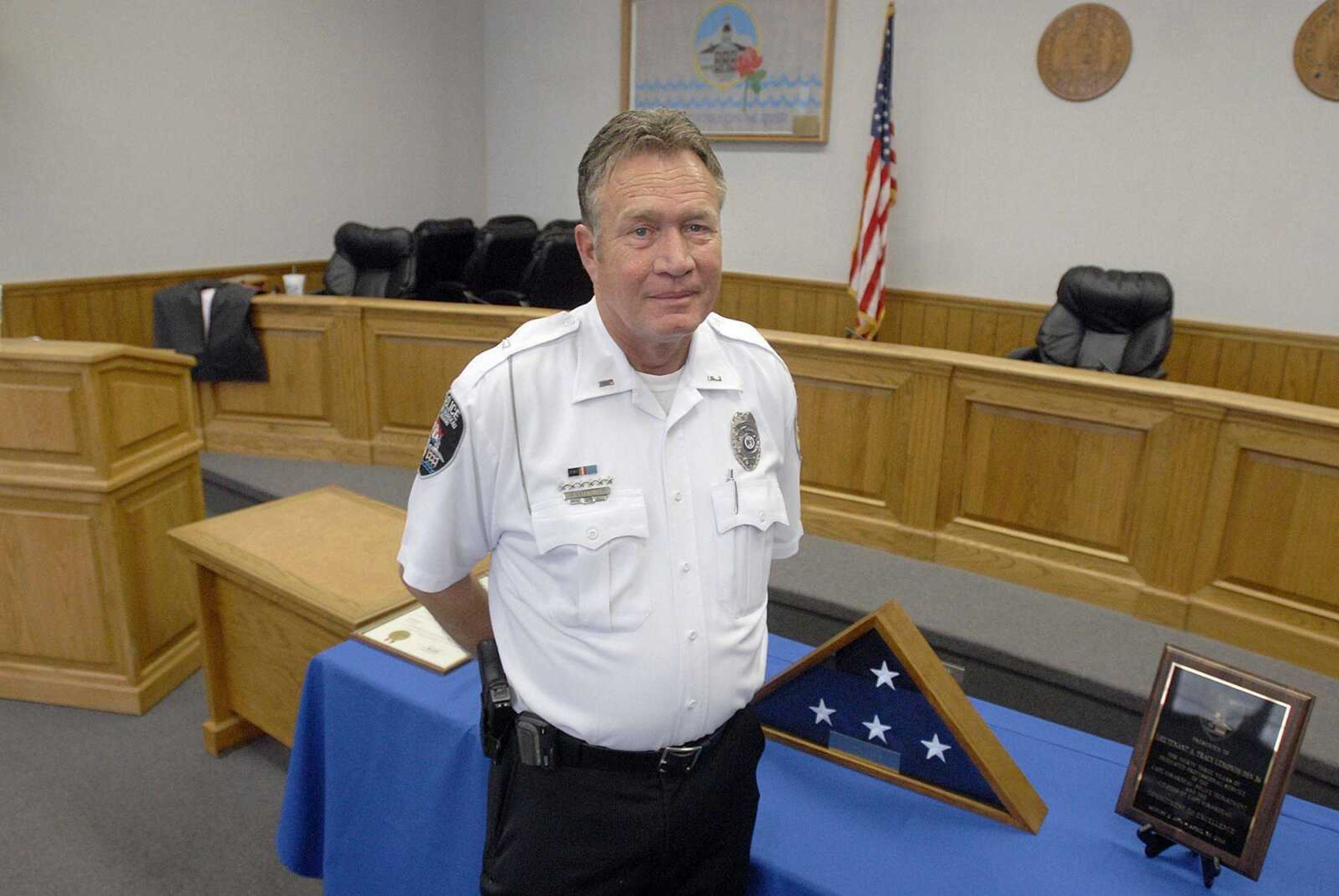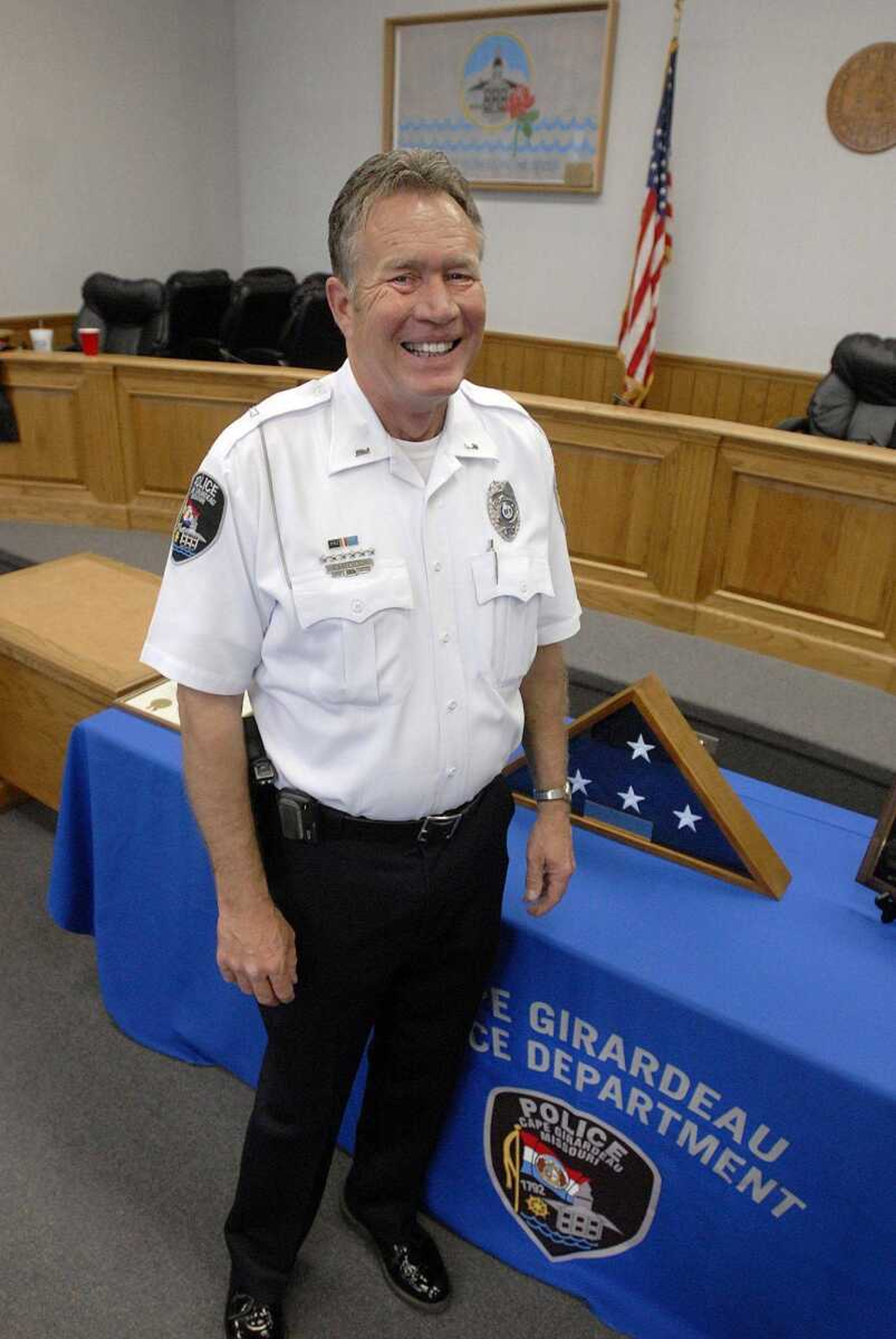Kennett, Mo., native retires after 33 years on the force
Editor's note: This is the first 'Answering the call' article to appear in the Southeast Missourian. It will appear each Monday, helping to establish a relationship between the community and the people who keep its residents safe. 'Answering the call" will feature police officers, firefighters and other emergency personnel. ...
Editor's note: This is the first 'Answering the call' article to appear in the Southeast Missourian. It will appear each Monday, helping to establish a relationship between the community and the people who keep its residents safe. 'Answering the call" will feature police officers, firefighters and other emergency personnel.
As a graduate of the first class of criminal justice majors at Southeast Missouri State University, Kennett, Mo., native Tracy Lemonds began his career in law enforcement at the age of 22. Lemonds was one of nine people who were hired to the Cape Girardeau Police Department in 1976, and of his 33 years on the force he spent 11 as a crime scene investigator. Lemonds also worked as a patrolman, commander of the detective division and in public affairs. He was promoted to sergeant in 1985, to lieutenant in 1994 and took over the special operations unit in Cape Girardeau in 2009. Lemonds celebrated his retirement Friday with coworkers and friends by his side.
Q: Which position at the police department did you enjoy the most?
A: I enjoyed each one of them, but I really like the investigations or the detective division. I was the crime scene officer before it was sexy. It was viewed differently back then before all the TV shows.
Q: What is it about being a crime scene investigator that's so enjoyable?

A: I guess I call it the puzzle factor. You have a crime and you don't know who did it and you have to put the pieces of the puzzle together. A lot of it's very frustrating. You follow leads and they don't pan out and then you get to a point where things just start falling into place. It's very interesting to watch and to be involved in.
Q: When you think of all the cases you've been on, which are the most important or unique to you?
A: Back in the 1980s we had a serial rapist in Cape Girardeau. He would break into residences at night and sexually assault the victims. A lot of times there were children in the residence and he would use that as a coercion. We made the whole case basically on shoe sole impressions that were left at the scene. And, of course, I'm really glad that Timothy Krajcir is never going to walk the streets again and that we were able to solve those cases from the 1970s and early 80s. It was a very stressful time for both the police department and the community. Just the fact that those murders were solved and he's in prison before I retire is a good feeling.
Q: How has the Cape Girardeau Police Department changed for the better since you first signed on?
A: In 1976 there were no field training officers. The first night I came to work it was a midnight shift and I was given a set of car keys and they said "Here you go." Now, we have a three-month program where the new officer will start by just riding and observing and then gradually move into carrying out the functions of a police officer with their field trainer observing them. They'll give them a little more freedom throughout the three months and culminate with the new officer in the car themselves and the field training officer shadowing them in another car.
Q: So, what was your first night like?
A: It was scary, it really was. You go through four years of college and two months of training and it doesn't prepare you for the real world. It was a very unique night. I was a little apprehensive. I think we're better off now using the field training officers.
Q: What have you liked about the administrative part of the job?
A: My involvement with the community. I'm on the Safe House for Women board, the Alzheimer's board, the Salvation Army board of directors. I enjoy that aspect of the job; we're a pretty major part of the community. Cape Girardeau has just been a great place to work.
Q: Were you feeling like it was time to retire?
A: I am not at all unhappy with my job. I've loved my time here. A job opportunity presented itself to work as a court security guard at the federal courthouse. As a police officer, the city's retirement system allows policemen and firemen to fully retire at age 55 and I'm 56. But, if it weren't for this job coming available, I wouldn't be retiring.
Q: How are you feeling about leaving the department after more than 30 years?
A: I'm retiring with mixed emotions. I've been here since I was 22 years old, so it's like a family. I grew up here, so it's going to be hard separating myself from that. Plus, being a police officer ... it's more than just a job, it's an identity.
Q: Will find any time for yourself, to do the things you enjoy?
A: Yeah, I'll be on the golf course. I'll be trying to lower my handicap, which is pretty high right now. I really like golf.
Connect with the Southeast Missourian Newsroom:
For corrections to this story or other insights for the editor, click here. To submit a letter to the editor, click here. To learn about the Southeast Missourian’s AI Policy, click here.










